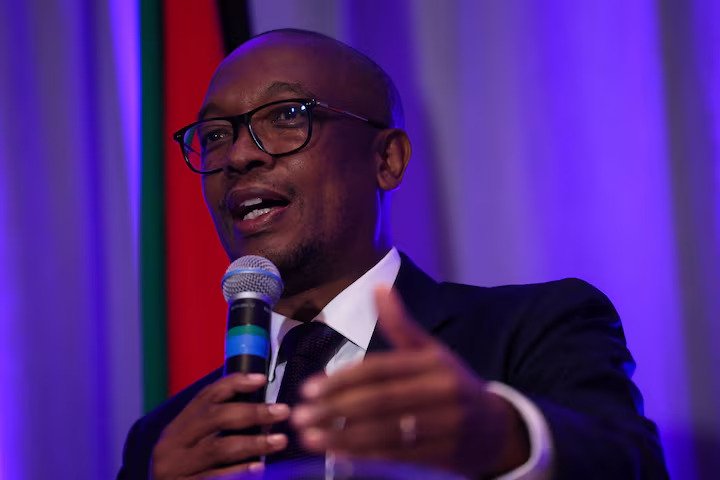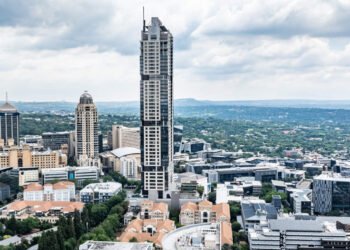South Africa’s trade negotiations with Washington entered a critical stage after Trade Minister Parks Tau met with U.S. Trade Representative Jamieson Greer for high-level talks on Friday. The discussions come as Africa’s most industrialized economy battles to roll back steep tariffs imposed by the United States.
President Donald Trump last month slapped a 30% tariff on South African imports, marking the highest rate in Sub-Saharan Africa. The move triggered alarm in Pretoria, with fears that tens of thousands of jobs could be at risk in an economy already grappling with sluggish growth and unemployment above 30%.
In a statement, South Africa’s trade ministry described the meeting as constructive. “Minister Tau held a cordial and constructive meeting with the USTR on matters of mutual interest. The meeting was preceded by intensive three-day discussions by senior officials,” the ministry said. It added that “both parties agreed to a roadmap that will inform future engagements towards the conclusion of the process.”
The tariff dispute has deepened a year of strained ties between Pretoria and Washington. Tensions escalated after President Trump made unfounded claims of persecution against South Africa’s white minority, which led to the creation of a controversial refugee program for white South Africans.
Agriculture Minister John Steenhuisen hinted last month that South Africa might need to address some of Trump’s objections to ease the tariff burden. Among them, he noted, was the U.S. president’s opposition to affirmative action measures designed to redress apartheid-era inequalities.
President Cyril Ramaphosa, however, openly criticized the tariffs as “unilateral” and based on a “contested interpretation of trade data.” He argued that Washington’s claims of a significant trade surplus were misleading, noting that 77% of U.S. goods already enter South Africa duty-free under the Most Favoured Nation tariff regime. Ramaphosa pointed out that the country’s average tariff on imports is just 7.6%, far below the figures cited by Washington.
The South African leader insisted that negotiations were ongoing and suggested the tariffs might be adjusted depending on their outcome.
Pretoria Offers Concessions Amid Economic Pressure
South Africa has sought to strike a pragmatic balance between firmness and flexibility. Officials proposed a “Framework Deal” to Washington, offering to buy American liquefied natural gas and commit billions in investments in U.S. industries. The plan aimed to soften the economic impact of tariffs, but it went unanswered by Washington.
In response, Pretoria rolled out support measures for domestic industries most exposed to the U.S. tariffs. The government launched an “Export Support Desk” and pledged financial assistance to sectors such as automotive manufacturing and agriculture. Both industries face significant threats, with job losses projected to reach into the tens of thousands.
The crisis has fueled debate at home over the country’s trade strategies. Some commentators argue that Pretoria should have acted earlier to diversify markets. Currently, South Africa is ramping up efforts to strengthen ties with Asia, the Middle East, and other African partners to cushion the blow of U.S. restrictions.
The tariff escalation also cast a shadow over the African Growth and Opportunity Act (AGOA), a U.S.-Africa trade relations that previously granted South Africa duty-free access to American markets. Analysts warn that the standoff threatens not only the future of bilateral trade but also broader regional trade dynamics.
The trade clash highlights Pretoria’s challenge in navigating shifting global economic currents. For South Africa, the task is not only to blunt the immediate impact of Washington’s tariffs but also to safeguard its long-term trade security in an era of volatile U.S. trade policy.
READ ALSO: Former Chief Justice’s Legal Future Sparks Heated Debate























